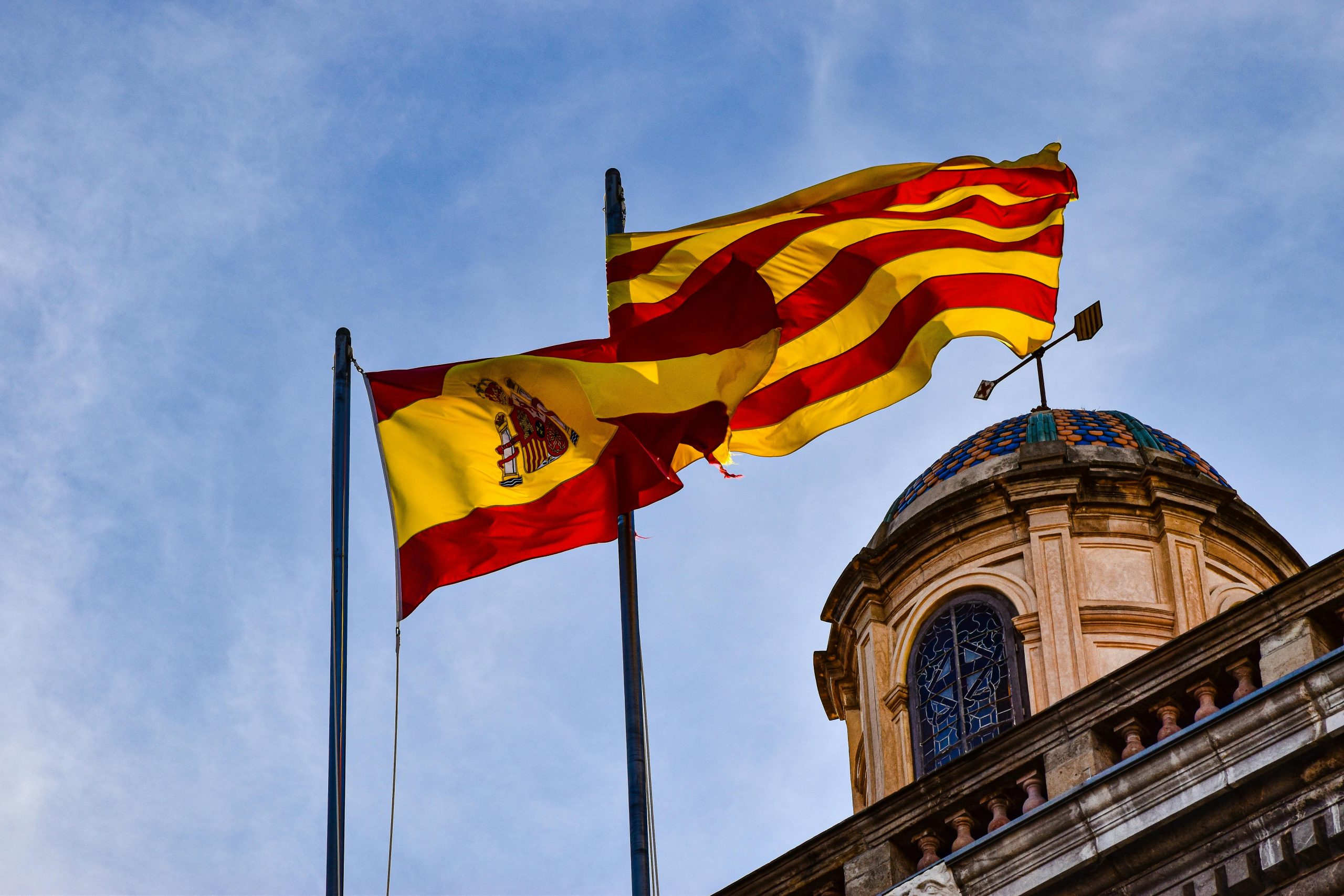Taxes in Luxembourg: Learn types of taxes & more
Welcome to the green heart of Europe! Discover all the taxes in Luxembourg so that you can enjoy living here with everything in order.
This small country is known as the “green heart of Europe,” with over a third of its territory made up of lush forests and green landscapes. Despite its size, it attracts people from all over the world, particularly professionals in banking and technology, but does Luxembourg have low taxes? Living here offers a great quality of life amidst nature and financial stability, as it’s a global hub for asset management. That’s why it’s important to understand taxes in Luxembourg, both for individuals and businesses.
At Holafly, we want to provide you with a detailed overview of Luxembourg’s main taxes, including the latest rates for 2025. So, whether you’re already living in Luxembourg or planning to move there for a while, this article will be a valuable resource to help you stay on top of your tax obligations.
Taxes for individuals or natural persons in Luxembourg
In Luxembourg, personal taxes follow a progressive system, meaning the amount you pay depends on your income level. This approach ensures a fair distribution of wealth. The tax system includes direct taxes on personal income and capital, as well as indirect taxes on goods and services. Individuals subject to these taxes include employees, self-employed workers, freelancers, digital nomads, students, and retirees who choose to live in Luxembourg, whether temporarily or long-term. Let’s take a look at the key taxes you should be aware of.
Income tax
As mentioned earlier, this is a direct and progressive tax applied to an individual’s income based on their earnings in a given fiscal year. The tax rate follows a sliding scale, ranging from 0% to 42% for the highest income brackets. Additionally, taxpayers are classified into different categories, which influence the applicable tax rate.
- Class 1. Single or separated taxpayers without children: The tax rate follows a progressive structure, starting at 0% for incomes below 12,438 euros ($13,055) and gradually increasing to a maximum of 42% for earnings over 220,788 euros ($231,746). Additionally, an employment fund surcharge of 7% or 9% applies, depending on income level.
- Class 2. Married couples filing joint returns: It distributes the tax burden more fairly, helping to reduce overall tax pressure. The rate is also progressive but includes specific adjustments for combined incomes.
- Class 1a. Single or widowed parents with dependents: The rate is similar to Class 1, but some additional deductions or lower rates apply to support these taxpayers in their family situation.
Value added tax (VAT)
In Luxembourg, the Value Added Tax (VAT), known as TVA (Taxe sur la Valeur Ajoutée in French), is an indirect tax applied to most goods and services. It’s a consumption tax that businesses collect from customers through their invoices and then remit to the government. Luxembourg’s VAT rates are among the most competitive in the EU.
| Fee | Products/services | Example |
| Standar 17% | Most goods and services: electronics, clothing, furniture, and general services. | A 1,000 euros ($1,058) TV with a standard rate of 17%, the tax will be 170 euros ($180). |
| Intermediate 14% | Specific products and services such as fuels and the sale of alcoholic beverages in bars or restaurants. | Specific products and services such as fuels and the sale of alcoholic beverages in bars or restaurants. For the purchase of a bottle of wine in a restaurant for 50 euros ($53) at the intermediate rate of 14%, the VAT will be 7 euros ($7.35). |
| Reduced 8% | Goods and services considered to be of public interest: restaurant services, water supplies or cultural products. | Dinner in a restaurant for 50 euros ($53) at the reduced rate of 8%, VAT will be 4 euros ($4.23). |
| Super reduced 3% | Essential products and services: food, printed books, medicines, and certain electronic publications. | Purchase of books for 100 euros ($106) at the super reduced rate of 3%, the VAT would be 3 euros ($3.17). |
| Exemptions | Medical, educational and financial services. |
Property tax
In Luxembourg, local municipalities oversee this tax, which applies to real estate such as homes, commercial properties, land, and buildings. The amount is determined by the property’s assessed value, an official estimate set by local authorities. As one of the main revenue sources for municipalities, this tax is relatively low compared to other European countries, particularly in rural areas. Here’s how the rates are structured:
- Fees: The rate ranges from 0.7% to 1% of the property’s assessed value, though it can vary depending on the type of property (residential, commercial, or industrial). Municipalities with higher population density may apply higher rates.
- Example: If an apartment with a cadastral value of 500,000 euros ($532,000) is located in a small municipality with a tax rate of 0.8%, the annual property tax would be 4,000 euros ($4,256). On the other hand, the same apartment in a rural area with a 0.5% rate would only have a tax of 2,500 euros ($2,660).
Social contributions
In Luxembourg, social contributions are mandatory for everyone and are based on their income. The contribution usually amounts to between 25% and 27.5% of the gross salary, depending on the employment contract and sector. These contributions help support the social security system, pensions, healthcare, unemployment insurance, and other social benefits.
For example, a worker with a monthly salary of 4,000 euros ($4,256) would have social contributions deducted of around 1,100 euros ($1,170), leaving a net income of 2,900 euros ($3,090).

Taxes for legal entities or companies in Luxembourg
Businesses operating in Luxembourg face a well-structured and competitive tax system designed to encourage foreign investment and economic stability. Below, we outline the tax obligations that every company must comply with.
Corporate income tax
The corporate income tax (CIT) is the main tax that companies in Luxembourg must pay on their profits. It is progressive and includes both national and local rates. Here are the applicable rates:
| Rate type | Value |
| Domestic | 17% |
| Local | An average of 6.75%, depending on each municipality. |
| Solidarity surcharge | An additional 7% of the national tax. |
| Total rate | The combined rate for companies located in the capital, which is the most common jurisdiction, amounts to 24.94%. For example, a company with net income of 1,000,000 euros ($1,064,000) would have a tax liability of 249,400 euros ($265,966). |
Value added tax (VAT)
In Luxembourg, the VAT (Taxe sur la Valeur Ajoutée or TVA) applies to most goods and services, as we’ve seen in the section on individuals. Companies act as collectors, passing the tax on to the government through their invoices. For example, if a company sells products worth 100,000 euros ($106,400) with a 17% VAT rate, it would need to transfer 17,000 euros ($18,088) to the government. Here’s a reminder of the VAT rates:
- Standard rate: 17% for most products.
- Intermediate rate: 14% for specific items, such as luxury goods and certain services.
- Reduced rate: 8% for essential goods.
- Super-reduced rate: 3% for basic products such as food, books and medicine.
Tax on fixed assets
In Luxembourg, taxes also apply to the fixed assets of businesses or legal entities. This is a municipal tax that all companies with real estate or machinery used for commercial purposes must pay. The tax helps balance local development and encourages investment in infrastructure. Here’s how the rates are applied:
- Fee: The tax is 1.4% of the property’s cadastral value, as determined by local authorities based on factors such as location, size, and the characteristics of the property or equipment. This rate is applied to the assessed value to calculate the annual tax.
- Example: A commercial building with a cadastral value of 2,000,000 euros ($2,128,000) would incur an annual tax liability of 28,000 euros ($29,792) at the 1.4% rate.
Important: If you are a frequent traveler and want to stay connected without worrying about expensive roaming or looking for a new SIM at every destination, Holafly’s subscription plans are for you. With a single eSIM, enjoy internet in more than 170 countries for a fixed price and no surprises on your bill. travel without limits and connect easily and securely! 🚀🌍

Net Wealth Tax (NWT)
The net wealth tax (NWT) in Luxembourg is applied to companies based on the net value of their assets. Its purpose is to tax the net wealth of legal entities and encourage reinvestment rather than the accumulation of idle assets. The tax applies to resident companies on their worldwide net wealth and to foreign company branches, but only on the income they generate in Luxembourg.
- Standard rate: 0.5% for companies with a net wealth of up to 500 million euros ($540 million).
- Reduced rate: 0.05% for wealth exceeding this threshold.
- Example: A company with a net wealth of 200 million euros ($213.2 million) must pay 1 million euros ($1,066 million) annually in NWT at 0.5%.
Corporate social security contributions
These contributions are mandatory payments that companies must make to support Luxembourg’s social security system, which covers benefits such as healthcare, pensions, and unemployment insurance. Typically, employer social contributions range from 12% to 15% of the gross salary, depending on the job type and industry. For instance, for an employee earning 50,000 euros ($53,200) annually, the company would contribute between 6,000 and 7,500 euros ($6,390–7,990) in social contributions.

Tax benefits in Luxembourg
The Luxembourg government has created a tax incentive program to ease the tax burden for businesses and individuals. These incentives primarily focus on attracting migrants, supporting new business creation, and relocating financial operations to the country. Here are the key benefits:
| Type of benefit | Description | Application |
| Personal deductions | They allow to reduce the taxable income through deductible expenses such as mortgage interest, donations and pensions. | For residents and non-residents with income subject to tax in Luxembourg. |
| Investment tax credits | Up to 8% for investments in new equipment and property. | Encourages business expansion in the country. |
| Exemptions for expats | Relocation-related expenses, such as housing or children’s schooling. | Attracts international talent. |
| NWT Reduction | Companies can create a specific reserve to reduce Net Wealth Tax. | For investments in projects within the country. |
| Special economic zones | Some regions offer preferential tax rates to boost local development. | Additional benefits if companies are established in designated areas. |
Frequently asked questions about taxes in Luxembourg
Individuals in Luxembourg are required to pay various taxes, including VAT, income tax, property taxes, and social security contributions.
Although Luxembourg offers a competitive tax system compared to other countries, it is not classified as a tax haven under EU regulations, as it meets international standards for transparency and tax cooperation.
Businesses in Luxembourg can benefit from tax deductions, investment credits, reduced corporate tax rates, and other advantages by establishing themselves in special economic zones.
It is mandatory for individuals and companies, although there are minimum income thresholds to be obliged to file the tax return.
Foreigners who live and work in Luxembourg are eligible for various tax benefits, such as exemptions or deductions for relocation, housing, and children’s education, among others.





 Language
Language 


















 No results found
No results found








